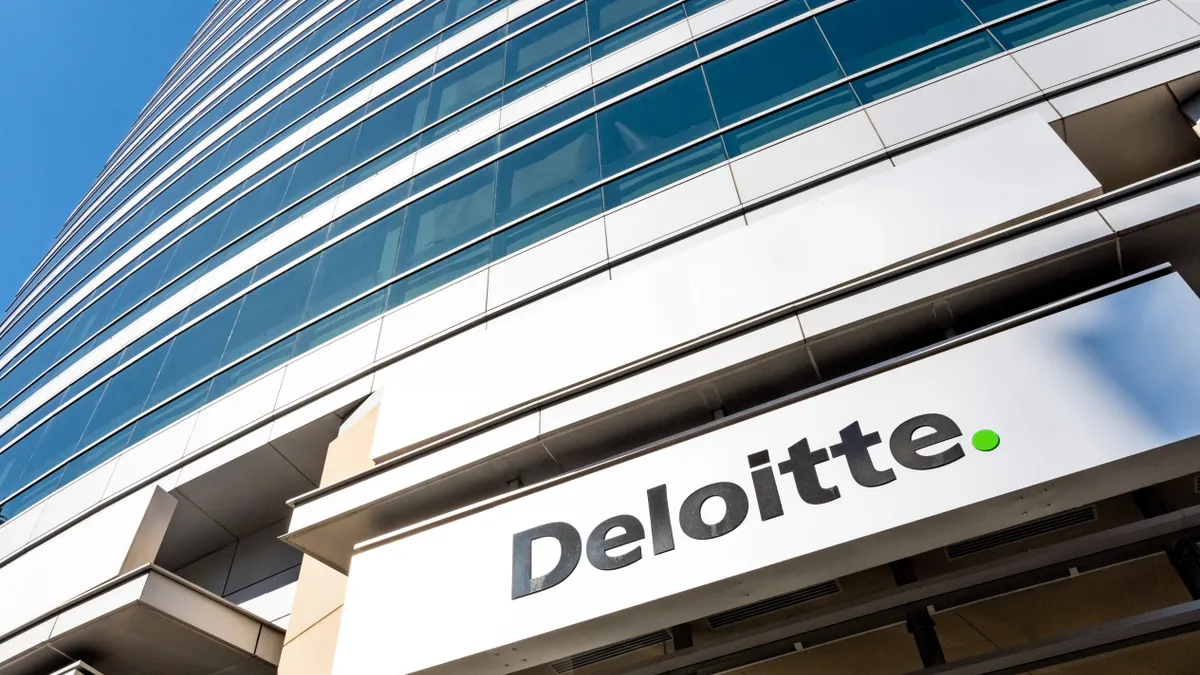Dive Brief:
- A majority of the C-suite, including around 8 in 10 CEOs, say they’re feeling pressured by employees, customers, investors, partners and board members to publicly commit to improving human sustainability, according to a June 18 report by Deloitte in collaboration with Workplace Intelligence.
- Leaders are embracing the pressure, a survey conducted in February and March found. Close to 90% of those who responded said they’d like their pay to be tied to human sustainability metrics, and 71% believe their company’s leadership should change if they aren’t advancing human sustainability, the report pointed out.
- Even so, there seems to be a perception gap: While 82% of executives believe their company is advancing human sustainability, just 56% of workers agree. “In fact, some leaders fail to recognize that for most people surveyed, work is a negative rather than a positive force in their lives,” Deloitte noted.
Dive Insight:
Over the past few years, organizations have faced increasing workplace challenges — rampant worker burnout, declining employee mental health, workplace violence and extreme weather events, to name a few, the report’s authors observed.
To address these issues, organizations should refocus around the idea of “human sustainability,” defined as the degree to which organizations create value for people as human beings, the authors urged.
With this approach, organizations can leave their employees “with greater health and well-being, strong skills and greater employability, good jobs, opportunities for advancement, progress toward equity, increased belonging and heightened connection to purpose,” the Deloitte report argued.
Findings for the 3,150 employees, managers and C-level executives across the U.S., U.K., Canada and Australia who responded to the Deloitte/Workplace Intelligence survey suggest the approach may benefit both workers and their organizations.
For instance, around 7 out of 10 workers said that if their organization increased its commitment to human sustainability, it would not only improve their overall experience at work (72%) and increase their engagement and job satisfaction (71%), it would also lead to greater productivity and performance (70%), desire to stay with the company long term (70%), and trust in their company’s leadership (69%).
However, leaders may be in the dark about their employees’ sentiments on workforce well-being — a key component of human sustainability, the research found. Only around 1 in 3 workers said their physical (34%), mental (32%), financial (35%) and social (31%) well-being improved last year. By comparison, at least 7 out of 10 executives believe these well-being dimensions improved for their people.
Despite the disconnect, most organizations are concerned about employee well-beng, according to other studies. The vast majority of CHROs who responded to The Conference Board’s 1Q 2024 CHRO Confidence Index said businesses are at least somewhat responsible for well-being. In light of steadily declining engagement levels, nearly half said their organizations plan to offer new well-being benefits.
The investment is timely. Disengagement and low productivity are symptoms of burnout, which has remained stubbornly high, according to a recent report from Eagle Hill Consulting.
Employers may have “hit a wall” when it comes to reducing worker burnout, Eagle Hill’s CEO said. For solutions, she recommended employers look to input from workers, who have consistently reported that stress and burnout can be alleviated by increased flexibility and a decreased workload.
Managers play a critical role in addressing burnout, according to an April report by The Grossman Group and The Harris Poll. But leaders at all levels have to be involved, The Grossman Group CEO indicated. From top management on down, the focus on well-being should be purposeful and intentional, the CEO said.













